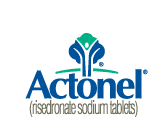MONTREAL -- A total of 35% of those with polycystic ovary syndrome also had depression in a case-control study of 206 women.
"We recommend that women with PCOS should be routinely screened and adequately treated for depression," study investigator Elizabeth M. Hollinrake said at the joint annual meeting of the American Society for Reproductive Medicine and the Canadian Fertility and Andrology Society.
Among women with PCOS, the odds ratio was 5.11 for newly diagnosed depression and 4.23 for depression overall (newly diagnosed and previously diagnosed depression), compared with controls who did not have PCOS, said Ms. Hollinrake, who is a third-year medical student at the University of Iowa, Iowa City.
In an interview, the study's lead author, Anuja Dokras, M.D., Ph.D., noted that the results also show for the first time that depression in PCOS patients is significantly associated with both high body mass index (BMI) and insulin resistance.
"Between 50% and 70% of women who are treated for depression recover completely, so this is an important target population that we should be both screening and treating," added Dr. Dokras of the University of Iowa Hospitals and Clinics in Iowa City.
The study, which earned a first-place award among the General Program Prize Papers that were presented during the meeting, compared a total of 103 PCOS patients with 103 controls.
Women with PCOS diagnosed by the Rotterdam criteria were recruited from a reproductive endocrinology clinic; women without PCOS who attend the gynecology clinic for an annual exam were the controls.
The study investigators used the Primary Care Evaluation of Mental Disorders Patient Health Questionnaire to diagnose major depressive disorder and other depressive syndromes. The Beck Depression Inventory was used to score the severity of depression.
Chi square and t-testing were used to compare differences between women with PCOS and controls, and PCOS women with and without depression.
In the PCOS group, 35% (36 women) were classified as depressed, compared with 10.7% (11 women) in the control group, representing a statistically significant difference. Of these 47 women with depression, 22 were already on antidepressants when they entered the clinic, the study showed.
When these 22 women were not considered, the rate of newly diagnosed depression was 21% in the PCOS group and 3% in the control group.
Women with PCOS had a significantly higher mean BMI than did controls (34.9 vs. 25.4), as did the subset of PCOS women who were depressed, compared with those who screened negative, according to the investigators.
"Although increased BMI among the depressed women is in keeping with the literature, ours is the first study to show this correlation in depressed women with PCOS," Dr. Dokras said.
Among the study participants with PCOS, 11% of those with depression also had diabetes, compared with none of the women without depression; the depressed women also had significantly higher glucose, insulin, and qualitative insulin-sensitivity check index scores.
"Importantly, women with PCOS have higher androgen levels, so one would have expected that if that was the basis, we would find some correlation with depression. On the contrary, these data showed no association with androgens ... only with BMI and insulin resistance," Dr. Dokras said during the interview.
BY BRUCE K. DIXON
Chicago Bureau
Kate Johnson of the Montreal Bureau contributed to this report.
COPYRIGHT 2005 International Medical News Group
COPYRIGHT 2005 Gale Group



